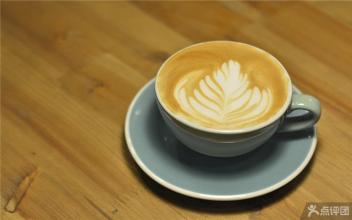Rapid Growth of Korean Coffee Chain Market

In a short time, South Korea has become Starbucks' third main battlefield after the United States and Japan, so much so that the South Korean government may try to limit the fast-growing coffee chain market. In Seoul, South Korea, there are coffee shops such as Starbucks, Caffe Bene and Angel-in-us Coffee in almost every two buildings, and these stores may be only 70 meters apart.
The South Korean market, once a luxury coffee drink, has grown at a dizzying rate in the past few years, with the number of cafes in South Korea rising nearly tenfold to 12381 in the five years from 2006 to 2011. The number of Starbucks stores has more than doubled in the past five years to 367. last year, Starbucks said he planned to increase the number of Starbucks stores in South Korea to 700 by 2016.
Last year, South Korean adults consumed an average of 338 cups of coffee, and South Korean customs said that in the past four years, coffee imports have increased by 44% to 130000 tons. At the same time, KB Financial Group said the overall market value of coffee reached 2.48 trillion won ($2.19 billion), a 17-fold increase over the past.
Analysts say it was Starbucks' entry into the Korean market in 1999 that sparked the coffee boom in South Korea. Lee Taek-gwang, a cultural commentator and professor at Seoul Kyung Hee University, said: "without Starbucks, there would not be a coffee boom here." "Starbucks is a symbol of American culture, and now it is widely recognized and appreciated by young Koreans." Ko Sun-bee, a teacher at a high school in Seoul, said: "because there are few places where I can meet my friends comfortably, I will choose to meet my friends in cafes more often."
The demand for espresso and lattes in South Korea is large enough to help improve the fortunes of coffee chains and individual stores.
Yeo Seon-koo, owner of Yeondoo Coffee, said: "I am very grateful to Starbucks." "South Korea used to sell 300 won for a cup of coffee, but Starbucks makes people willing to pay nearly 5000 won for a cup of coffee, whether they like it or not."
South Korea, Asia's fourth-largest economy, now has so many cafes flooding the market that South Korean regulators have to consider whether to order a new franchise related to the "distance" of coffee shops to protect them from cut-throat competition. An official with the Fair Trade Commission, an antitrust agency, said: "franchising operators allow one store to open near another store of the same brand, which will significantly reduce sales in existing stores, which will do great harm to existing stores." The FTC and coffee franchisees will begin negotiations on whether to set store distance rules and other rules, the results of which may be announced in September.
In April, FTC adopted the same rule for bakery chains, stipulating that there can be one new store for every 500m and no more than one franchised store within 500m. Although some critics say the move hurts smaller stores.
No matter how it turns out, the coffee boom is unlikely to cool down anytime soon. Yeo Seon-koo, owner of Yeondoo Coffee, said that although the market for coffee franchises in Seoul is saturated, coffee consumption is still relatively low, which means further growth in the market is still possible. The coffee market in Seoul is still in its early mature stage.
Important Notice :
前街咖啡 FrontStreet Coffee has moved to new addredd:
FrontStreet Coffee Address: 315,Donghua East Road,GuangZhou
Tel:020 38364473
- Prev

The Kopi Luwak Initiative began to sell well in the American market.
In the eyes of coffee lovers around the world, Kopi Luwak is novel and very expensive. According to the Huffington Post, Kopi Luwak became popular in the United States because of an article in the New York Times.
- Next

Hougu Coffee: the most complete Coffee Industry chain in Yunnan
Among the coffee growing areas in Yunnan Province, the area of Dehong Prefecture is not the largest, but the Hougu Coffee cultivated in Dehong Prefecture is the most complete industrial chain. The planting base of Hougu is mainly Dehong Prefecture and Lincang City. At present, there are about 200,000 mu of development and planting. Hougu Coffee adopts the mode of company + base + cooperative to develop coffee planting. first of all, it transfers the idle land of farmers to enterprises and soil.
Related
- Workers collapse! Lucky suspects that it will introduce freshly cut fruits?!
- 1-point subsidy recipients wear thousand-yuan watches?! Local response: For low-income households
- Can lightly roasted coffee beans be used to extract espresso? How finely should you grind high-quality coffee beans to make Italian latte?
- What is the difference between the world's top rose summer coffee and Yejia Shefi? What are the flavor characteristics of Yega Shefi coffee and Panama rose summer?
- The ceremony is full! Starbucks starts to cut the ribbon at a complimentary coffee station?!
- A whole Michelin meal?! Lucky launches the new "Small Butter Apple Crispy Latte"
- Three tips for adjusting espresso on rainy days! Quickly find the right water temperature, powder, and grinding ratio for espresso!
- How much hot water does it take to brew hanging ear coffee? How does it taste best? Can hot water from the water dispenser be used to make ear drip coffee?
- What grade does Jamaica Blue Mountain No. 1 coffee belong to and how to drink it better? What is the highest grade of Blue Mountain coffee for coffee aristocrats?
- What are the flavor characteristics of the world-famous coffee Blue Mountain No. 1 Golden Mantelin? What are the characteristics of deep-roasted bitter coffee?

